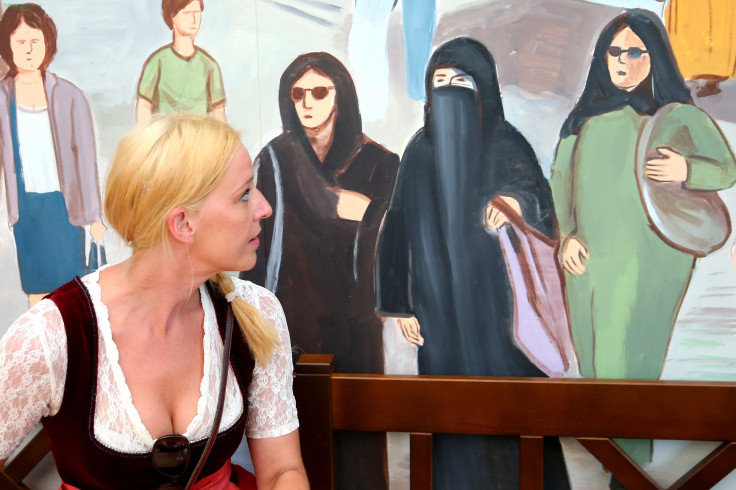Anti-Muslim Laws Around The World: Burka Ban In Bavaria Helps Public Safety, German Official Says

The wearing of full-face veils in certain public spaces was set to be outlawed in the German state of Bavaria after the local government announced Tuesday that it had given its approval to the ban. The interior minister of the southeastern state, which has a population of more than 12 million, said the burqa – a face and body veil – and the niqab – a face-covering veil – hindered communication and posed a threat to public safety.
“A communicative exchange takes place not only through speech, but also through looks, expressions and gestures," Joachim Hermann said following a cabinet meeting, reports Deutsche Welle. "It forms the foundation of our interpersonal relationships and is the basis of our society and free and democratic order ."
The legislation stated that the veils will be prohibited "in the fields of civil service, universities, schools, kindergartens, in the fields of public general safety and order, and at elections."
Hermann’s conservative Christian Social Union (CSU) has an absolute majority in Bavaria’s state parliament, meaning the legislation was set to be passed before the body’s summer break.
The CSU was the smaller sister party to German Chancellor Angela Merkel’s Christian Democrats (CDU). Merkel herself said last December that she was in favor of banning burqas and full-face veils “wherever legally possible.”
Both that statement and the proposed legislation were widely seen as attempts by the governing party to quell the threat from the anti-immigrant Alternative for Germany (AfD) party ahead of the country’s federal election in September. The AfD’s popularity has been boosted by a backlash to the country admitting more than one million migrants in the last two years.
However, latest polling ahead of the election indicated Merkel’s CDU, with 32 percent, was being beaten by a single point by the center-left Social Democrats. The AfD was trailing in third on nine percent.
When asked how many civil servants would be impacted by Bavaria’s burqa ban, Hermann responded that no current officials wore a full-face veil, according to Sueddeutsche Zeitung. German media reports have indicated that fewer than 300 women wear the niqab regularly, with the numbers who wear burqas even fewer.
The parliamentary deputy in Bavaria, the Greens’ Ulrike Gote said of the proposed ban: “We solve problems that we do not have.”
© Copyright IBTimes 2025. All rights reserved.





















